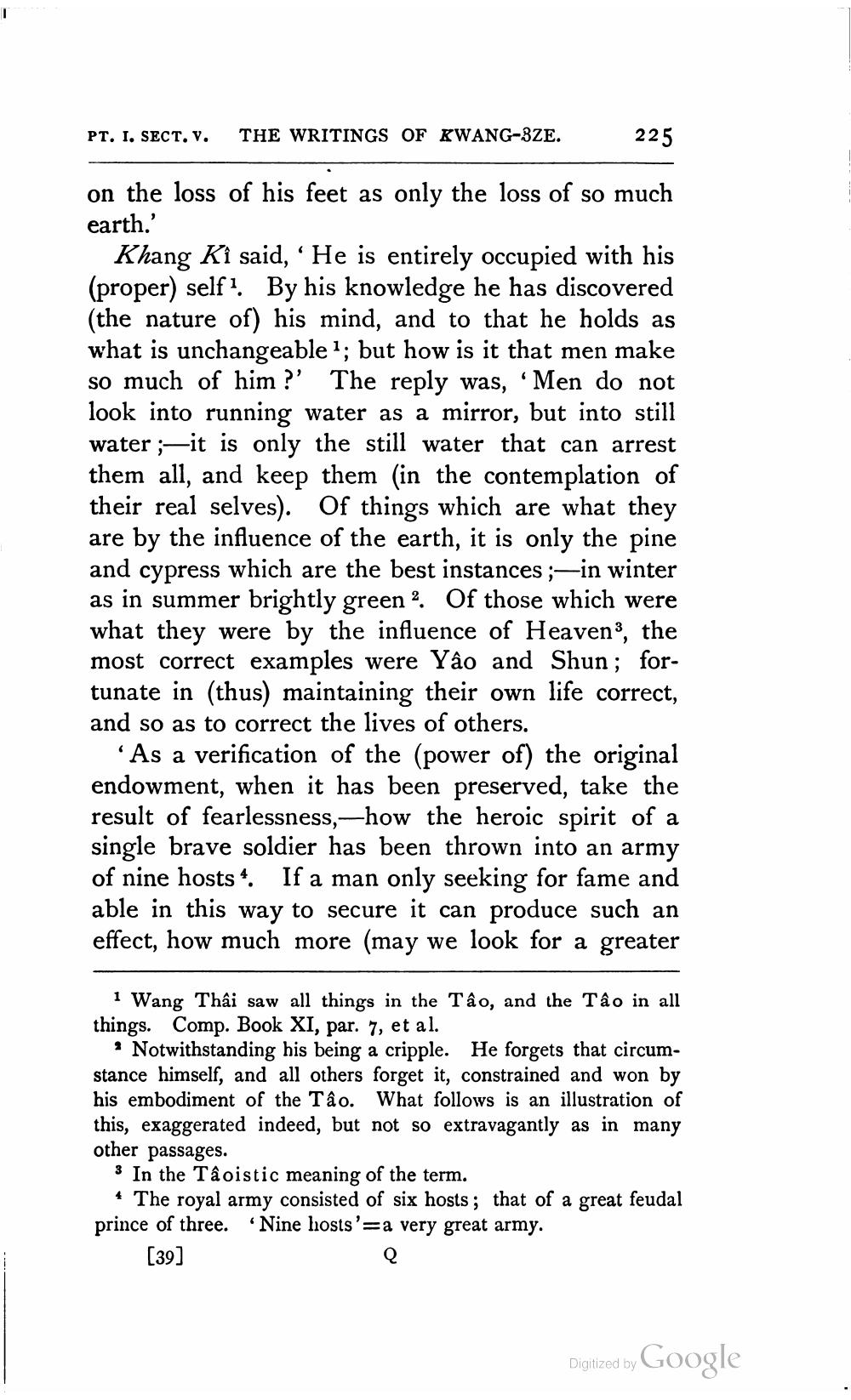________________
PT. I. SECT. v.
THE WRITINGS OF KWANG-ZZE.
225
on the loss of his feet as only the loss of so much earth.'
Khang Kỉ said, 'He is entirely occupied with his (proper) self. By his knowledge he has discovered (the nature of) his mind, and to that he holds as what is unchangeable 1; but how is it that men make so much of him?' The reply was, “Men do not look into running water as a mirror, but into still water;—it is only the still water that can arrest them all, and keep them in the contemplation of their real selves). Of things which are what they are by the influence of the earth, it is only the pine and cypress which are the best instances ;-in winter as in summer brightly green 2. Of those which were what they were by the influence of Heaven, the most correct examples were Yão and Shun; fortunate in (thus) maintaining their own life correct, and so as to correct the lives of others.
‘As a verification of the (power of) the original endowment, when it has been preserved, take the result of fearlessness,-how the heroic spirit of a single brave soldier has been thrown into an army of nine hosts 4. If a man only seeking for fame and able in this way to secure it can produce such an effect, how much more (may we look for a greater
1 Wang Thâi saw all things in the Tâo, and the Tâo in all things. Comp. Book XI, par. 7, et al.
Notwithstanding his being a cripple. He forgets that circumstance himself, and all others forget it, constrained and won by his embodiment of the Tao. What follows is an illustration of this, exaggerated indeed, but not so extravagantly as in many other passages.
3 In the Taoistic meaning of the term.
4 The royal army consisted of six hosts; that of a great feudal prince of three. Nine hosts'=a very great army.
[39]
Digitized by Google




